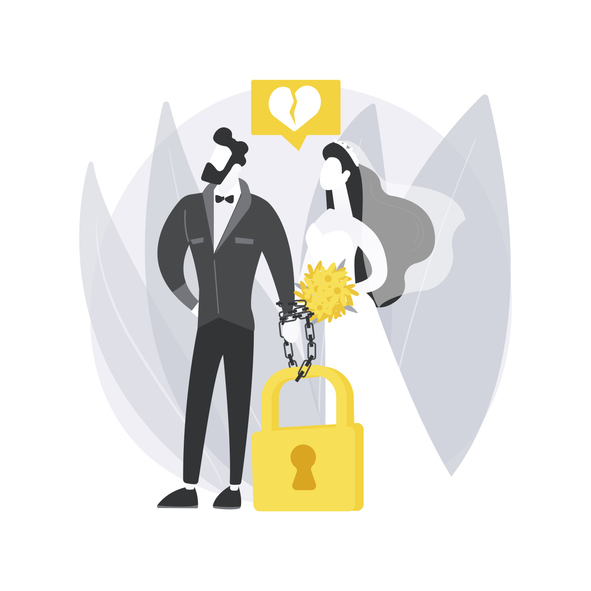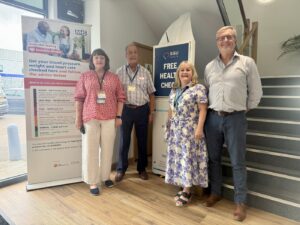Forced Marriages Awareness Week – 7th-11th July 2023
School summer holidays are a peak time for young people to be taken overseas and forced into marriage against their will. The FMU will be using social media to highlight this issue from 7-11 July.
For more information on Forced Marriages and Modern Slavery click here
How to protect, advise and support victims of forced marriages, including information and practice guidelines for professionals
https://www.gov.uk/guidance/forced-marriage
Recognise a forced marriage
A forced marriage is where one or both people do not or cannot consent to the marriage and pressure or abuse is used to force them into the marriage. It is also when anything is done to make someone marry before they turn 18, even if there is no pressure or abuse.
Forced marriage is illegal in the UK. It is a form of domestic abuse and a serious abuse of human rights.
The pressure put on people to marry against their will may be:
- physical: for example, threats, physical violence or sexual violence
- emotional and psychological: for example, making someone feel like they are bringing ‘shame’ on their family
Financial abuse, for example taking someone’s wages, may also be a factor.
How to report forced marriage – Essex Police
How to report forced marriage | Essex Police
Honour Based Abuse (escb.co.uk)
Forced Marriages (supportline.org.uk)
Find a Service in Your District – Essex Compass
Child & forced marriage | FORWARD (forwarduk.org.uk)
https://www.haloproject.org.uk/forced-marriage-unit-W21page-31
https://www.bbc.co.uk/news/uk-17534262
I need help – Birmingham Solihull Women’s Aid (bswaid.org)
Short videos
https://www.youtube.com/watch?v=bnw_2-SdvhI 3.19 mins BBC London
https://www.youtube.com/watch?v=NMY-YZloZBI 4.25 mins BBC World Service
https://www.youtube.com/watch?v=pC41r5aegSA Global Boyhood Initiative Webinar: Boys & Child, Early and Forced Marriages and Unions
Anti-Slavery Day is marked every year on October 18th.
What is Anti-Slavery Day?
Anti-Slavery Day is an opportunity to raise awareness of the fact over 49.6 million people in the world today, and an estimated 136,000 people in the UK, are trapped in conditions of modern slavery. But it doesn’t have to be this way.
Anti-Slavery Day is a time to encourage governments, businesses, friends, family and colleagues to do what they can to prevent human trafficking and protect victims of modern-day slavery. Find out more here
Anti-Slavery Day takes place every year on 18th October. At Hope for Justice, we will be hosting a whole week of events and campaigns (16th – 22nd October) which individuals and organisations can take part in to mark Anti-Slavery Day 2023.
Resources:
https://www.gov.uk/government/collections/modern-slavery
https://www.essex.police.uk/advice/advice-and-information/ms/modern-slavery/
Hope for Justice | End Slavery. Change Lives.
Short videos
https://www.youtube.com/watch?v=Jv1H_fAoOG4
https://www.youtube.com/watch?v=yOe2-j3QzKI
https://www.youtube.com/watch?v=CuqhvnWCHEw
How criminals exploit their victims
Forced labour
Forced labour is when victims are threatened or physically forced into working in someone’s home or business. Criminals might also trick their victims by promising real work in another place or country, then forcing them into slavery once they arrive.
Even if a victim seemingly agrees to the work, we can still prosecute if the work and conditions aren’t acceptable. Nobody can agree to being exploited.
Victims can work very long hours for little or no pay. They are often kept and work in terrible conditions. But it is still modern slavery if the victim is kept in decent conditions, but is not free to leave or live their lives as they want.
Victims can be forced to do any kind of commercial work. Common examples include:
- on a fishing boat
- in fields
- as a builder
- in a hotel
- in a factory
- as a cleaner in an office or shop
But they can also be forced to work in people’s homes, cooking and cleaning as domestic slaves.
Criminal exploitation
Criminal exploitation is when victims are made to commit crimes like:
- shoplifting
- pickpocketing
- stealing fuel from cars
- benefit fraud
Drugs
Some victims in the drug trade are forced to work as cannabis growers. Others are used to distribute or sell drugs.
County lines is one form of criminal exploitation. This is where vulnerable people, often children, are used to carry drugs from cities to sell them in nearby towns and the countryside.
Find out more about county lines
Sexual exploitation
Victims are forced into sex work or to perform sexual acts against their wishes and without their consent. This includes escort work, pornography or making indecent images of children.
Most victims of sexual exploitation are women and children, but men can also be affected.
Organ trafficking
Victims are moved from one place to another so they can have their body parts removed. These are then sold for surgical transplants. Body parts include tissues and organs, for example, kidneys.
Spotting modern slavery
Modern slavery can happen anywhere in any situation. Each case is different, and may not fit the stereotype of groups of people being forced to work in fields or on fishing boats.
The signs of forced labour, and criminal or sexual exploitation can be very different. Victims might look helpless and afraid, but they can also seem to accept their situation, be completely unaware of it, or even defend the people who are exploiting them.
Report it and get support
If you think modern slavery is happening, tell someone as soon as you think it’s safe to. This could be about a victim, a suspect, or a particular business or place. You will always be taken seriously, and protection and support is available.
You can report modern slavery to us using our online crime reporting service.
Or call us on 101 at any time. If you have a hearing or speech impairment, use our textphone service on 18001 101.
If you suspect someone is in immediate danger, call 999 now.
To report a suspicion or get advice you can contact the Modern Slavery Helpline confidentially on 08000 121 700.
If you want to to remain anonymous you can contact Crimestoppers on 0800 555 111.
Published: 02 July 2023

